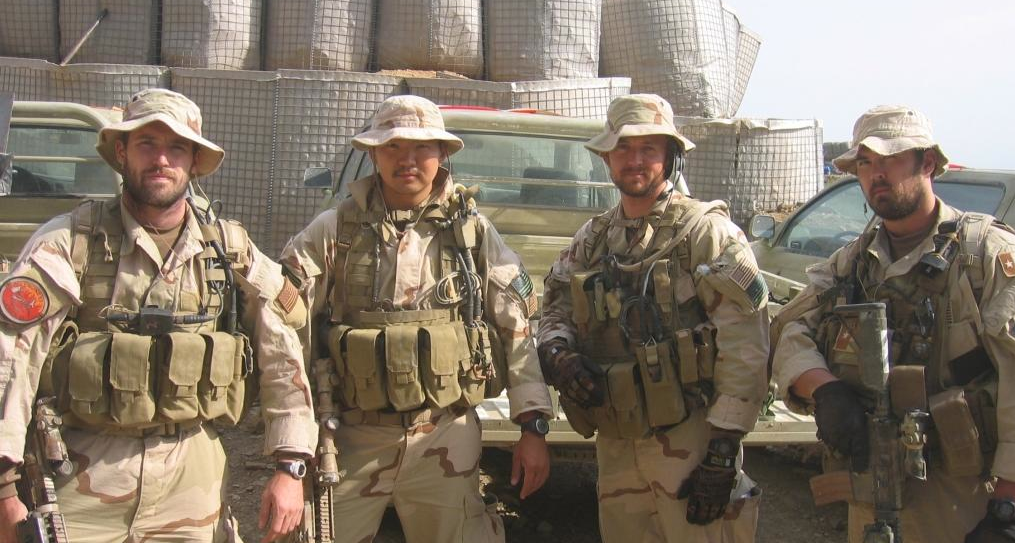Operation Red Wings stands as a poignant reminder of the sacrifices made by military personnel in the line of duty. This operation, executed by the United States Armed Forces in 2005, has become a significant part of modern military history, symbolizing both valor and tragedy. Set against the rugged backdrop of Afghanistan, the mission aimed to dismantle a Taliban stronghold and capture or eliminate key insurgent figures. However, the operation did not unfold as planned, leading to profound consequences for those involved.
The story of Operation Red Wings is not just about tactical maneuvers and military objectives; it is also about the remarkable individuals who served and sacrificed their lives. Through bravery and resilience, they embodied the spirit of service that the armed forces represent. This article aims to provide a comprehensive overview of the operation, its key players, and the enduring legacy that continues to resonate today.
As we delve deeper into the events surrounding Operation Red Wings, it becomes essential to remember the human element amidst the military strategy. The challenges faced by the soldiers involved, the decisions made under pressure, and the ultimate sacrifices are all integral parts of the narrative. Join us as we explore the intricacies of Operation Red Wings and honor those who displayed extraordinary courage in the face of adversity.
What was the Objective of Operation Red Wings?
Operation Red Wings was primarily aimed at disrupting the Taliban's operational infrastructure in Afghanistan’s Kunar Province. The mission had several key objectives, including:
- Identifying and capturing or eliminating high-value Taliban targets.
- Gathering intelligence on enemy activities.
- Providing support to local Afghan security forces.
- Strengthening the U.S. military presence in the region.
Who Were the Key Personnel Involved in Operation Red Wings?
Operation Red Wings was led by a small team of Navy SEALs, whose bravery and determination would ultimately be tested in the most challenging of circumstances. The team included:
| Name | Rank | Role |
|---|---|---|
| Michael P. Murphy | Lieutenant | Team Leader |
| Matthew Axelson | Petty Officer Second Class | Operations Specialist |
| Danny Dietz | Petty Officer Second Class | Gunner's Mate |
| Shane Patton | Petty Officer Second Class | Communications Specialist |
What Caused the Failure of Operation Red Wings?
Despite the careful planning, Operation Red Wings faced unexpected challenges that contributed to its tragic outcome. Key factors included:
- Intelligence Failures: The team was compromised after local villagers alerted Taliban forces to their presence.
- Terrain Challenges: The rugged and mountainous terrain of Kunar Province made navigation and communication difficult.
- Overwhelming Enemy Forces: The SEAL team found themselves outnumbered, as they engaged with a well-prepared Taliban unit.
What Were the Consequences of Operation Red Wings?
The immediate consequences of Operation Red Wings were devastating. Three out of the four SEALs were killed in the initial firefight. The team was later reinforced by additional military units, but they also faced significant losses. The operation ultimately resulted in the following:
- The death of 19 U.S. service members, including 16 Navy SEALs.
- The loss of a helicopter during a rescue mission, contributing to the tragic toll.
- Increased awareness of the challenges faced by special operations forces.
How Did Operation Red Wings Impact Military Operations?
In the aftermath of Operation Red Wings, there were critical evaluations of military tactics and strategies employed in Afghanistan. The operation highlighted the need for improved intelligence gathering, better communication protocols, and enhanced training for special operations forces. Key impacts included:
- Revised tactical approaches to ground missions in hostile environments.
- Increased emphasis on intelligence sharing and collaboration with local forces.
- Development of new technologies and equipment to support special operations missions.
What is the Legacy of Operation Red Wings?
The legacy of Operation Red Wings extends beyond the battlefield. It serves as a tribute to the courage of the service members involved and a reminder of the sacrifices made by military families. The operation has inspired numerous books, documentaries, and films, including:
- “Lone Survivor” by Marcus Luttrell, a firsthand account of the operation.
- The film adaptation of “Lone Survivor,” which brought widespread attention to the events.
- Various memorials and events honoring the fallen heroes of Operation Red Wings.
What Lessons Can Be Learned from Operation Red Wings?
The events surrounding Operation Red Wings offer critical lessons for military strategy and leadership. Some key takeaways include:
- The importance of thorough reconnaissance and understanding the operational environment.
- Emphasizing teamwork and communication, especially in high-stakes situations.
- Recognizing the human element in military operations, valuing the lives of service members above all.
How is Operation Red Wings Remembered Today?
Today, Operation Red Wings is commemorated through various means, ensuring that the sacrifices of those involved are not forgotten. Memorials, ceremonies, and educational programs focus on raising awareness about the operation and its significance. Additionally, organizations dedicated to supporting veterans and their families continue to honor the legacy of Operation Red Wings by advocating for their needs and well-being.
In conclusion, Operation Red Wings remains a powerful example of heroism, sacrifice, and the complexities of military operations. As we reflect on the events that transpired, it is imperative to recognize the bravery of those who served and to continue to honor their memory in our collective consciousness.
N O V E: Exploring The Depths Of Creativity And Innovation
Unveiling The Role Of The Secretary Of State Michigan Flint
Unlocking The Skies: Your Ultimate Guide To The App In The Air


